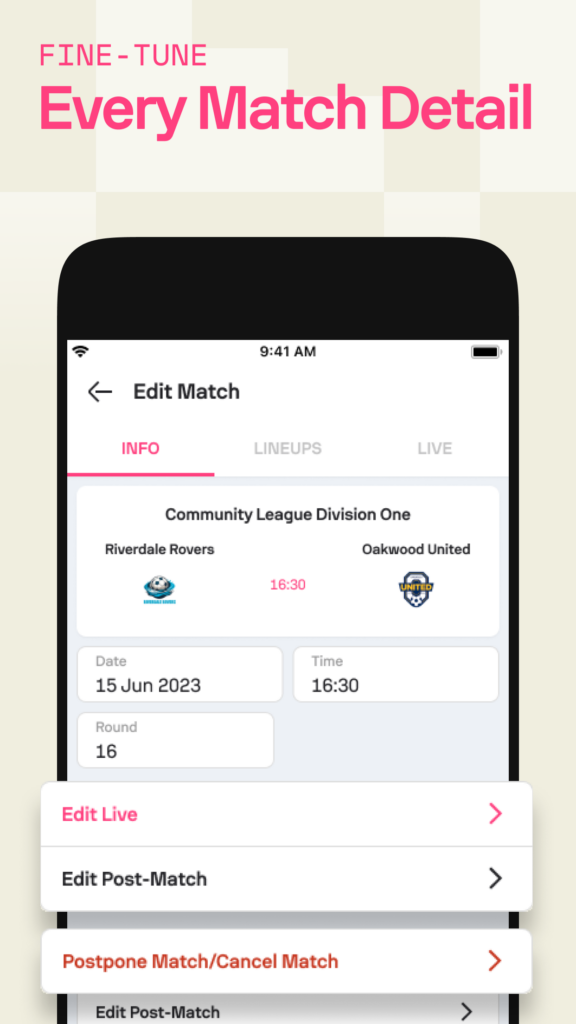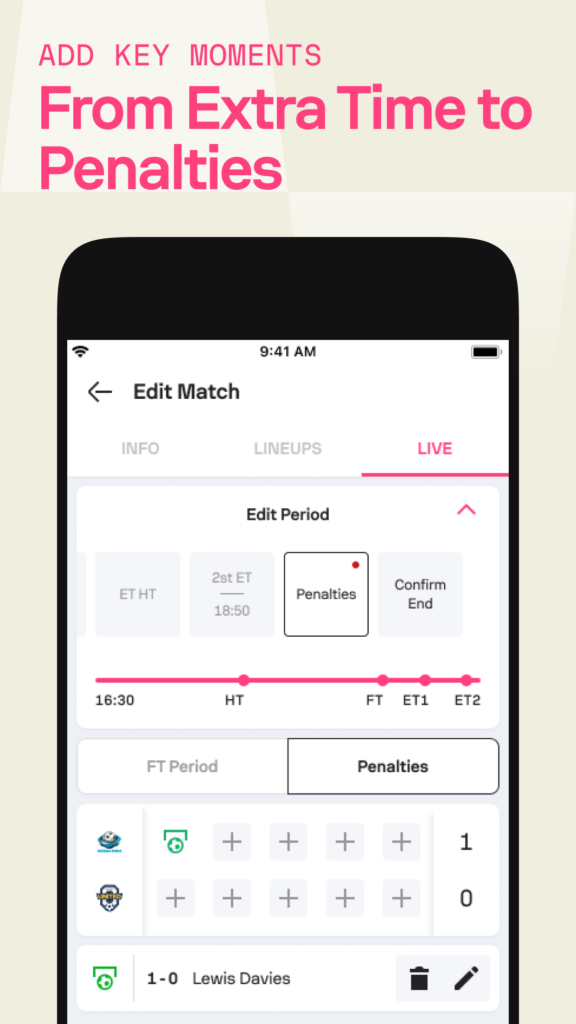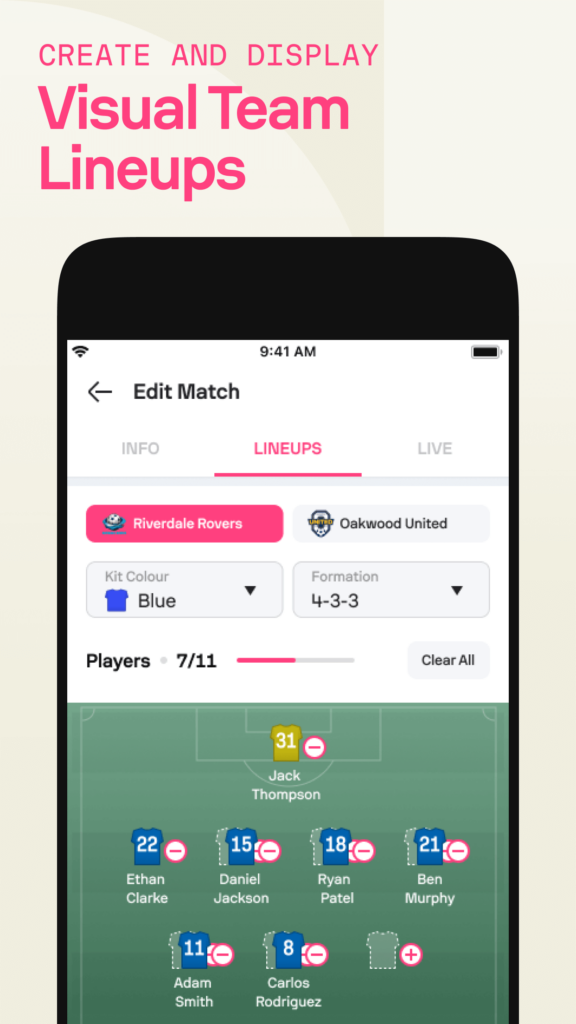Today, sports are not only fast-paced but also involve managing leagues and tournaments. Along with handling players and teams, it becomes all the more challenging. With the correct sports management platform, it saves loads of time. A good platform also increases visibility and coverage. It enhances the entire experience for organizers, players, and fans alike. This article showcases different features to consider in a sports management platform. It highlights the importance of those features, to choose the perfect tool for your needs.
Types of Sports Management Platforms
Sports management platforms come in different types – based on the level of competition. Knowing such categories gives information about which type goes well with your needs.
1. Grassroots and amateur platforms
These platforms typically cater to tournaments in communities, school leagues and amateur clubs. They are simple and cheap with just the basic features of tournament applications. This can be seen in Copa Fácil, which is aimed at organizers who do not have tech support. It ‘s for organisers who prefer reliable and cost-effective solutions.

2. Semi-Pro and Youth Leagues Platforms
These platforms cater to youth leagues and semi-pro clubs. They offer extra services including team management, player profiles and scheduling tools. League managers find the features matching the usability. But, they do not feel overwhelmed within the scope of growth.
3. Professional and enterprise platforms
These are used in large clubs, federations and associations. Features range from analytic data, sponsorship integration and communication modules . They could drain one’s pocket, but are ideal for more considerable coverage.

Essential Features to Look For
When evaluating sports management platforms, one should keep in mind the bigger picture. Consider the features that simplify operations, enhance visibility and improve user experience. Here are the most critical features:
1. Digital Competition Management
Make sure that an organizer, scheduler and manager can all be found in one place. This is key for creating fixtures and brackets in digital competitions. This digital transformation eliminates the manual errors in paper based processes. It also allows real-time access to updates across devices. This process keeps both organizers and participants in sync.
2. Live Scores and Real-Time Updates
Real-time updates offer everything in the dynamic world of fans and participants. This ranges from the scores of matches, stats of both players and the timelines of the match. It adds to the excellent transparency, keeping all on the same page. They cater to audiences following from a distance, or stakeholders for their analysis.

3. Player and Team Profiles
The platform should ideally feature individual player and team profiles. It in turn increases their engagement and professionalism. Such profiles can contain stats, top scorers and match histories. This would keep a record of his progress as well as visibility for up-and-coming talent. With searchable databases, it allows scouts and fans to keep track of emerging talent.
4. Integrated Live Streaming and Media Support
Apart from that, some platforms also enable live video streams and even media content. They integrate live streaming directly into the apps or websites. This provides a more compelling experience to the fans. It could also lead to new revenues for organizers, by sponsorship placements.
5. Automated Reporting Tools
Manually making reports is time-consuming. And sometimes it also leads to errors. A match summary and stat sheet should be ready automated by the platform. These tools ensure professionalism and make it easy to archive results. Post-match reports and downloadable files are crucial for organizers, coaches, and media partners.

6. Mobile Accessibility
A good platform can work on phones, tablets, or desktops and anywhere around the house, out and about. It helps them handle their events on the run and ensures no update is missed while out on the field. With working from home and real-time collaboration, mobile-first design becomes ever more important.
7. Community and Global Reach
One exciting benefit of modern platforms is linking local events to a worldwide audience. It would provide more exposure to smaller clubs and leagues. This would attract talent, sponsors and fans. It would also bring the community together in a shared space. Read more about it here.
8. Easy Onboarding and User Contribution
The platform should offer an easy setup for users of different competencies. Individual user contributions and data coverage can be widened as well. User-friendly designs with tutorial guides will facilitate easier acceptance.

9. International Multi-Sports Coverage
If managing more than one sport, then the platform should have a multi-discipline capability. Multi-sport compatibility ensures that your system grows with your organization’s ambitions. This feature is especially beneficial for schools, multi-sport clubs and national federations.
An Evolving All-in-One Platform
Among emerging tools, Sofascore Editor is gaining traction, integrating grassroots and global visibility. It is specifically made for small and mid-sized organizations. It provides support for over 200,000 events in a single year. It has a range of users across many games, from amateur clubs to national federations.

The direct integration with a global live score app is a competitive advantage. This allows even local matches to have global exposure. The contributors input results, manage lineups and key situations – all in one interface. The updates engage over 30 million active users worldwide. Organizers can promote talent, expand their reach and connect with fans.
Sofascore Editor automates reporting, allowing real-time and up-to-date information. Information and Data from the community will be added to a trusted and professional platform. This ensures there would be no single game going unnoticed.
Powering the Future of Sports Management
Choosing the right sports management platform depends on many factors. It could be the scale of your competitions and/or your desired level of engagement. These features can serve as a checklist, ensuring it supports performance and growth. Modern platforms provide the tools to ease operations and increase visibility. Investing in the right platform becomes investing in the future of the tournament. It warrants long term development and expansion of the sporting community.
